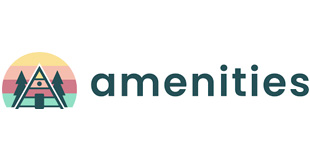NeuroFlow, a behavioral health tech company, has acquired Owl, a measurement-based care tech startup.
The acquisition will complement and strengthen each company’s offerings and is meant to expand their push into measurement-based care, executives said. The combined entity will be responsible for more than 17 million lives on the platform and support payers and providers in all 50 states. The financial details of the deal were not disclosed.
NeuroFlow has known of Owl for years and has been impressed by its traction, per NeuroFlow CEO Chris Molaro. “They were always the market leader in measurement-based care,” he told Fierce Healthcare. At the start of this year, the companies explored a partnership but ultimately decided that coming together as one company made the most sense, Molaro added.
Owl works with outpatient behavioral health providers like certified behavioral health clinics or addiction treatment centers, while NeuroFlow works with primary care providers and payers. There is also some overlap. For instance, both work with Ascension, but NeuroFlow works with its primary care groups, while Owl works with its psychiatry groups.
“That’s where we think the intersection is really exciting,” Molaro said.
“Together, our organizations will provide a truly comprehensive solution that simplifies identification of individuals in need of behavioral health care and guides them through their treatment journey,” said Eric Meier, CEO of Owl, who will serve as NeuroFlow’s president of behavioral health markets. “Ultimately, this merger means we can make the greatest impact on behavioral health outcomes across the healthcare spectrum.”
Over the coming six to 12 months, the companies will be integrating each other’s platforms. Combined, both companies will have more than 400 behavioral health assessments, including some in multiple languages. Among Owl’s strengths is its tech infrastructure to support measurement-based care, while NeuroFlow boasts patient engagement and activation tools that support patients between appointments.
“Measurement-based care in general is not a novel concept, but it’s novel in the respect of how it’s been adopted and standardized against BH—which is to say it hasn’t been adopted and standardized at scale,” Molaro said. Last year, NeuroFlow acquired Capital Solution Design, a measurement-based care solution for the Department of Veterans Affairs and other healthcare organizations.
The company has also begun exploring the use of natural language processing to detect and flag suicide risk in patients. Beyond their respective tech capabilities, both companies also bring their own clinical referral partners to the table—providers that can offer higher levels of support for patients that need it. The coming integration will enable NeuroFlow to send patients in need to Owl’s clinical referral partners and vice versa.
Policy changes have helped move measurement-based care forward, per Molaro. For instance, the Colorado Department of Health Care Policy & Financing has implemented requirements that regional accountable entities use measurement-based care tools to monitor behavioral health treatments for Medicaid members. One such entity, tasked with managing care for certain Medicaid members, is Colorado Access. To comply with the mandate, Colorado Access has adopted Owl.
In late 2023, Owl announced the results of a study in partnership with Colorado Access and behavioral clinic Aurora Mental Health & Recovery. It found that patients who consistently used Owl for measurement-based care achieved a 75% reduction in psychiatric in-patient admissions. They also achieved a 63% reduction in psychiatric ER visits and a net estimated annual savings of $25 million (for Colorado Access patients).
“Today with best-in-class user engagement experiences with technology, these things can be done remotely, they can be done outside of the clinical setting and then automatically integrated into care workflows,” Molaro said.



